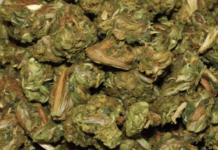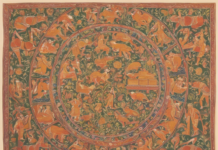Introduction
In the bustling city of Glendale, amidst its urban landscape and vibrant community, lies a hidden gem that offers a sanctuary for healing and rejuvenation – nature. With its embracing arms and bountiful gifts, nature provides us with a cornucopia of medicinal plants that have been utilized for centuries by various cultures around the world. In this article, we will delve into the benefits of nature’s medicine, explore the diverse array of healing plants found in Glendale, and learn how we can incorporate these gifts into our everyday lives to promote well-being and vitality.
The Power of Nature’s Medicine
Nature’s Medicine: Also known as herbal medicine or plant-based medicine, nature’s medicine involves the use of various plant parts such as leaves, flowers, roots, and bark to promote healing and combat illness. The healing properties of medicinal plants are attributed to their phytochemical components, which possess various therapeutic effects on the body.
Benefits of Nature’s Medicine:
– Holistic Healing: Nature’s medicine takes a holistic approach to health, addressing not only the physical symptoms but also the emotional and spiritual aspects of well-being.
– Minimal Side Effects: Compared to synthetic medications, herbal remedies often have fewer side effects due to their natural composition.
– Accessible and Affordable: Many medicinal plants can be easily grown at home or found in nature, making them a cost-effective alternative to pharmaceutical drugs.
Healing Plants of Glendale
Glendale, with its diverse ecosystem and favorable climate, is home to a multitude of healing plants that have been revered for their medicinal properties. Here are some of the notable healing plants found in Glendale:
-
Lavender (Lavandula angustifolia): Known for its calming and relaxing properties, lavender is often used to alleviate stress, anxiety, and insomnia.
-
Aloe Vera (Aloe barbadensis miller): Aloe vera gel, derived from the succulent’s leaves, is renowned for its soothing and healing effects on the skin, making it a popular remedy for sunburns and minor wounds.
-
Echinacea (Echinacea purpurea): This immune-boosting herb is commonly used to shorten the duration of colds and flu, thanks to its antiviral and anti-inflammatory properties.
-
Chamomile (Matricaria recutita): Chamomile tea is a beloved bedtime remedy known for its calming and digestive benefits, making it ideal for promoting relaxation and gut health.
-
Peppermint (Mentha piperita): The refreshing scent and taste of peppermint are not just invigorating but also aid in digestion and relieving headaches and nausea.
Incorporating Nature’s Medicine into Your Routine
Herbal Teas: Brew a cup of herbal tea using dried herbs such as chamomile, peppermint, or ginger for a soothing and health-boosting beverage.
Essential Oils: Harness the aromatic and therapeutic properties of essential oils by diffusing them at home or diluting them for topical use.
Herbal Salves: Create your own healing salves using herbs like calendula and comfrey infused in carrier oils to soothe skin irritations and promote wound healing.
Frequently Asked Questions (FAQs)
1. What is the difference between herbal medicine and conventional medicine?
Herbal medicine uses plants and plant extracts to promote healing, while conventional medicine relies on synthetic drugs. Herbal medicine takes a holistic approach to health, considering the whole person rather than just the symptoms.
2. Are there any potential side effects of using medicinal plants?
While medicinal plants are generally considered safe, some individuals may experience allergic reactions or interactions with certain medications. It is advisable to consult with a healthcare professional before incorporating new herbs into your routine.
3. How can I identify medicinal plants in the wild?
It is essential to educate yourself on plant identification and foraging techniques before harvesting plants in the wild. Joining local plant walks or courses led by experienced foragers can help you develop the skills needed to safely identify medicinal plants.
4. Can children and pregnant women use herbal remedies?
Certain herbs may not be safe for children or pregnant women, so it is crucial to consult with a qualified herbalist or healthcare provider before giving herbal remedies to vulnerable populations.
5. Are herbal supplements regulated by the FDA?
Herbal supplements are considered dietary supplements by the FDA and are subject to less stringent regulation compared to pharmaceutical drugs. It is important to purchase herbal products from reputable sources to ensure quality and safety.
Conclusion
Exploring nature’s medicine in Glendale unveils a world of healing opportunities that can enrich our lives and promote well-being from the inside out. By embracing the gifts of the earth, we can tap into the profound wisdom of medicinal plants and cultivate a deeper connection with nature. Remember to approach nature’s medicine with respect, curiosity, and caution, and let it nourish your body, mind, and spirit on your healing journey in Glendale’s oasis of healing.










